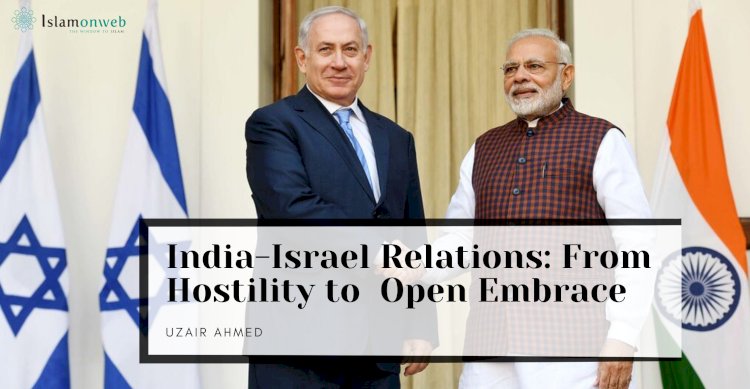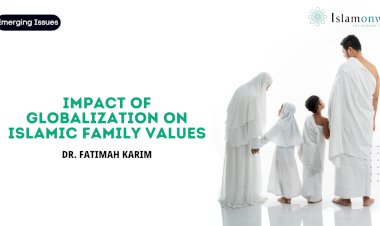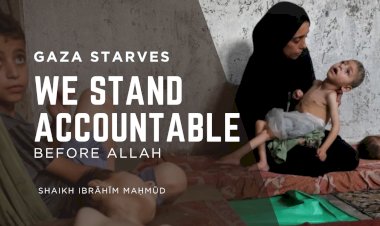India-Israel Relations: From Hostility to Covert Ties to Open Embrace
From 1757 to 1947, India endured British colonial rule for nearly 200 years, facing oppression, animosity, and violence, much like other colonised nations in Africa and Asia, including Palestine in the early 1900s. This colonial experience shaped independent India’s foreign policy, which traditionally opposed colonialism, oppression, and racism. Historically, India has consistently voiced support for oppressed and colonised countries, such as Indonesia, and was an early opponent of apartheid in 1946. Similarly, India has supported the Palestinian cause for freedom and independence since the early 1940s.
India’s empathy for Palestine’s struggle stems from its own experience under colonial rule, fuelling its longstanding support for Palestinian rights and freedom. However, over the past three decades, India’s diplomatic stance has gradually evolved from openly advocating for the Palestinian cause to striking a delicate balance between this traditional support and its growing relationship with Israel. Following the October 7th attack by Hamas on Israel, India attempted to project a balanced stance on the Israel-Palestine issue to the world and its own citizens. In reality, the situation has shifted, particularly in recent years, with India’s diplomatic stance increasingly tilting toward Israel, aligning more closely with its interests and agendas, as well as with the rise of right-wing politics in India.
Since 1947, when India gained independence, and Israel was created shortly after in 1948, India’s foreign policy has evolved through three significant phases: initially demonstrating full, open support for Palestine, transitioning to a more nuanced, balanced approach, and more recently, showing a distinct tilt toward Israel. This shift reflects both strategic interests and an ideological convergence with Israel’s right-wing approach.
Traditional support since 1945
India’s Father of the Nation, Mahatma Gandhi, expressed his views on the Palestine issue in a 1938 article titled “The Jews” published in Harijan. He wrote, 'Palestine belongs to the Arabs in the same sense that England belongs to the English or France to the French. It is wrong and inhumane to impose the Jews on the Arabs. What is going on in Palestine today cannot be justified by any moral code of conduct.' This stance by Gandhi laid the ethical groundwork for India’s foreign policy principles, which supported Palestinian rights. This influence extended to India’s first Prime Minister, Jawaharlal Nehru, who was profoundly influenced by Gandhi’s views and shaped nascent India's foreign policy during its formative years. As a result, India notably voted against UN Resolution 181, which proposed the partition of Palestine in 1947.
In 1947, when the United Nations General Assembly decided to partition Palestine into two states, one of Arabs and one Jewish, India staunchly opposed this partition plan and voted against creating Israel, aligning this stance with its anti-colonial foreign policy and commitment to self-determination for oppressed nations. Despite recognising Israel as a nation in 1950, India refrained from establishing full diplomatic relations due to Jawaharlal Nehru’s West Asia policy, which was influenced by solidarity with Arab countries and opposition to the Zionist project in Palestine.
During the Cold War era, India became a strong advocate for Palestinian rights within the Non-Aligned Movement, consistently supporting the establishment of East Jerusalem as Palestine's capital. In a significant diplomatic move in 1974, India became one of the first non-Arab nations to officially recognise the Palestine Liberation Organization (PLO) as the sole legitimate representative of the Palestinian people, supporting its leader, Yasser Arafat, in his efforts to seek international recognition for Palestinian statehood, who won the Nobel Peace Prize in 1994 for his work in fostering peace in the Middle East.
When Indira Gandhi became Prime Minister of India, she maintained the country's diplomatic distance from Israel, aligning with a policy of steadfast support for the Arab cause. During her two terms, from 1966 to 1977 and from 1980 to 1984, she cultivated strong relations with Arab states by diplomatically supporting them in their conflicts with Israel, condemning Israeli attacks, and firmly supporting Palestinian self-determination. A notable move was her establishment of a PLO office in New Delhi in 1975, followed by full diplomatic relations with the PLO in March 1980. India was also one of the first countries to recognise Palestine’s statehood following the declaration on November 18, 1988.
Over time, however, India's initial reluctance to engage with Israel waned, leading to the establishment of formal diplomatic relations in 1992 under Prime Minister P.V. Narasimha Rao. This marked a strategic shift to a de-hyphenation policy, balancing relations with Israel and Palestine through embassies and ambassadorial exchanges.
Nuanced Balanced Approach of India
When Narasimha Rao took a gigantic foreign policy leap in 1992 by establishing full-fledged diplomatic relations with Israel, it marked a paradigm shift in India’s foreign policy. Until then, India had maintained a clear distance from Israel, aligning itself with the Arab world and the Palestinian cause as part of its broader anti-colonial stance and leadership in the Non-Aligned Movement (NAM). However, under Narasimha Rao’s leadership, India adopted a strategically nuanced, balanced approach, with Rao himself framing this shift as a balance between 'the heart and the mind,' where the heart lay with Palestine, but the mind leaned toward Israel’s growing strategic value. This policy change enabled India to open an embassy in Tel Aviv and establish formal relations with Israel, marking a shift in India’s West Asia policy and opening the door to new military and technological collaborations.
Signs of an expanding relationship emerged when Israeli President Ezer Weizman visited India in 1997, which paved the way for the first significant arms agreements between the two nations. This partnership strengthened in 1999 during the Kargil War when Israel supplied India with critical military equipment, enhancing India’s defence capabilities during the conflict. While political engagements remained relatively restrained, a new level of openness was demonstrated in September 2003, when Prime Minister Atal Bihari Vajpayee welcomed Israeli Prime Minister Ariel Sharon with a state visit to India—a significant diplomatic gesture as many Western nations were hesitant to host Sharon at the time.
Right-Wing Hindutva Politics and Rise of Modi
Fast forward to 2014, when Narendra Modi came to power in India, an era that coincidentally aligned with the tenure of Israeli Prime Minister Benjamin Netanyahu. Both leaders, representing far-right nationalist parties, oversaw a significant strengthening of ties between India and Israel. This era of political engagement not only saw considerable advancements in bilateral relations in the fields of technology, defence, and trade, but also witnessed Modi adding a personal touch and grandeur to the relationship, which marked a tectonic shift in Indo-Israeli relations and de-hyphenated India’s Israel policy from the traditional Palestinian Angle.
In July 2017, Narendra Modi became the first prime minister of India to visit Israel and stopped at Mount Herzl to pay tribute to Theodore Herzl, the founder of Zionism, marking a significant shift in India-Israel relations. His counterpart, Benjamin Netanyahu, famously remarked that the India-Israel relationship was “a marriage made in heaven.” Notably, Modi was also the first Indian official to bypass Ramallah, the headquarters of the Palestinian National Authority, during such a visit. This historic visit set the stage for Modi to establish a strong personal rapport with Netanyahu, which further strengthened diplomatic and defence ties.
Following this, in January 2018, Modi hosted Netanyahu in India, solidifying their relationship and establishing a positive dynamic that facilitated cooperation across various fields. Since then, India’s foreign policy has transformed significantly, with relationships deepening in areas such as technology, agriculture, education, cinema, and defence. Trade between the two countries has grown steadily, and India’s defence sector, in particular, has built strong ties with Israel. Today, India stands as the largest foreign buyer of Israeli weapons and military products, with nearly 42.1 per cent of Israel's arms exports going to India since 2014. Late in 2019, it was discovered that the Indian government had acquired Pegasus spyware from the Israeli cyber-weapons company NSO Group, enabling surveillance on smartphones and reportedly used domestically against human rights activists, lawyers, and political leaders.
In 2022, India became part of the I2U2 group, which includes Israel, the United States, and the United Arab Emirates, signifying another layer of strategic collaboration. Recently, during the G20 summit held in New Delhi in September 2023, India proposed a new trade route known as the India-Middle East-Europe Economic Corridor (IMEC), aimed at connecting India to Europe via the UAE, Saudi Arabia, Israel, and Greece.
Under the influence of right-wing politics and Hindutva ideology, the Indian public perception of Israel has shifted significantly, with sympathy for the Palestinian cause diminishing. Many Indians no longer see Israel’s actions as problematic, and the sentiment in India increasingly favours alignment with Israeli policies. For Hindu nationalists, Israel has become a model of the kind of state they envision for India, often expressed as the desire to build a “Hindu Israel.” This ideological shift has contributed to India’s changing stance, which no longer aligns solely with the Palestinian cause but is marked by a closer affinity with Israel.
However, from October 7, 2023, when Hamas attacked Israel, to October 7, 2024, which marks a year of Israel’s intense response in Gaza, India’s stance has been one of deliberate silence and, at times, hypocrisy. Over this year, India’s lack of vocal condemnation and its restrained position have reflected a deeper ideological alignment with Israel. This period has marked a more distinct shift toward Israel, laying the groundwork for a new phase in India-Israel relations.
After October 7 and Deliberate silence
It has now been one year since Israel's extensive bombing campaign and attacks on Gaza, which have tragically claimed more than 43,000 Palestinian lives, many of them children. As of today, there seems to be no end to this war in the foreseeable future. In the midst of this ongoing Israel-Gaza conflict and the broader regional crisis, India’s stance has notably shifted in an unprecedented way. The Indian government’s response—reflected in its voting patterns on various United Nations resolutions—provides clear insights into this change.
Immediately after the Hamas attack on Israel, Prime Minister Narendra Modi tweeted to express complete solidarity with Israel in its fight against “terrorism in all its forms.” This statement marked a clear tilt towards Israel, especially considering that India has refrained from issuing any similarly explicit condemnation of Israel’s actions, which have reportedly resulted in over 43,000 Palestinian killings, many of whom are children. Notably, amid the ensuing Israel-Gaza conflict, India positioned itself apart from other Global South countries by abstaining from a United Nations General Assembly vote in favour of a ceasefire.
In the months following this initial stance, India sought to maintain a semblance of neutrality, balancing its actions by dispatching aid to Gaza and reaffirming its longstanding support for a “two-state solution.” Nonetheless, India’s response to the crisis has been perceived by many as overwhelmingly favourable to Israel. This perception was reinforced on November 13, 2023, when India abstained from a U.N. resolution aimed at investigating “Israeli practices and operations for human rights violations” in the occupied Palestinian territories. Similarly, on September 19, 2023, India chose to abstain in the United Nations General Assembly on a resolution “demanding that Israel end its unlawful presence in the occupied Palestinian territory within the next 12 months.
In April 2024, India once again abstained from a U.N. Human Rights Council resolution that called on Israel to enforce an immediate ceasefire in Gaza. This resolution urged member states to impose an arms embargo on Israel and hold Israel accountable for potential war crimes and crimes against humanity in Gaza. In an unprecedented move, India has allowed its domestic companies to continue exporting arms to Israel, with reports suggesting that these weapons are being used in the ongoing conflict in Gaza. Notably, the Supreme Court of India dismissed a lawsuit filed by a civil rights organisation seeking to halt arms exports to Israel, stating that such decisions fall under governmental jurisdiction.
One of the most surprising developments was India’s refusal to condemn Israel’s decision to ban United Nations Secretary-General António Guterres from entering the country. India notably did not join 104 other nations—including many European, African, and Global South countries—in signing a letter condemning Israel’s move. This letter, initially circulated by Chile and backed by Brazil, highlighted broad international disapproval of Israel's actions. In response to India's stance, senior Congress leader and former minister P. Chidambaram described it as "inexplicable," stating in a tweet that "India broke ranks with BRICS partners and allies by not signing—India should have been among the first to sign the letter."
This consistent pattern of abstention in India's voting reveals a deliberate silence and a stance that echoes the neutrality often seen in European nations—a neutrality that many find problematic. India's habit of abstaining, particularly in situations of grave injustice, is seen by some as an even more troubling form of tacit support. As South African theologian and priest Desmond Tutu once noted, "If you are neutral in situations of injustice, you have chosen the side of the oppressor." This silence, therefore, not only isolates India from much of the Global South but also raises questions about its ethical commitments on the global stage.
When it comes to public sentiment, India has witnessed very few sustained protests or public expressions of distress regarding the situation in Palestine. This is particularly ironic given India's historical position as a vocal supporter of the Palestinian cause. While the international community, especially in the U.S. and Europe, has traditionally been seen as staunch supporters of Israel, their citizens—including students at various universities—have actively organised significant anti-Israel protests and calls for boycotts against what many describe as genocide in Gaza. Demonstrations advocating for Palestinian rights have taken place in American and European cities, often resulting in suspensions for those participating in protests against Israel's actions. In stark contrast, despite India's long-standing advocacy for Palestinian rights, the Indian populace has largely remained silent during this crisis. The absence of large-scale protests against Israel, despite the government’s historical support for Palestine, can be attributed to the rising influence of Hindutva ideology and the current government's approach to dissent.
Undoubtedly, the government has curbed protests and, in many cases, banned them altogether. There is an active attempt to prevent people from voicing their opposition to what is happening in Gaza; individuals who support or organise protests against the genocide in Palestine have faced legal consequences. The rise of Hindutva and Islamophobia in India further contributes to the lack of concern for Palestinian rights.
Conclusion
How can we critique the European nations for their overt support of Israel and their persistent calls for a ceasefire when our own government—the Indian government—exhibits a similar stance by abstaining from resolutions in the UN General Assembly and adopting a neutral position while continuing to supply arms to Israel? It is crucial to recognise that if we are not outraged by Israel’s egregious violations of human rights, including its illegal occupation, annexation, ethnic cleansing, genocide, and war crimes in Palestine—even as we encounter these issues daily through newspapers, live broadcasts, and social media—we become complicit in these actions. Furthermore, India will likely continue to offer only rhetorical support for the Palestinian cause, as it has begun to do now. We must not forget the two centuries of British colonialism and oppression; if we persist in supporting Israel, it reflects a troubling collective amnesia regarding anti-colonial sentiments in contemporary India.
About Author
Uzair Ahmed is a postgraduate research scholar in the Department of Civilizational Studies at Darul Huda Islamic University, Kerala and a Political Science Student at Indira Gandhi National Open University (IGNOU). His research interests encompass Contemporary Islam, the Socio-political dynamics of Indian Muslims, South Asian Studies, Global Islamic Thought and International Relations.
References
- Liyaqat Nazit, “1 year in, India’s Approach to the Gaza War Reflects Wider Foreign Policy Change”, The Diplomat, October 7, 2024.
- Akhilesh Pillalama, “Why is India’s Hindu Right Pro-Israel”, The Diplomat, June 24, 2024.
- Angshuman Choudhary, “Israel-Palestine and Myanmar: How PV Narasimha Rao’s cold realpolitik eroded India’s moral diplomacy”, Scroll Media Inc., June 29, 2024.
- Achin Vanaik, “How India Has Moved With Israel: A Timetable of Milestone Events”, The Wire, May 26, 2021.
- P R Kumaraswamy, “Three Decades of Indo-Israeli Relations”, Institute of South Asian Studies, National University of Singapore, February 14, 2022.
- “PV Narasimha Rao took lead in ties with Israel”, Deccan Chronicle, July 4, 2017.
- Jaideep A Prabhu, “India: A Bad Friend To Israel”, Swarajya, May 9, 2017.
- PR Kumaraswamy, “Israel-Palestine conflict: India’s balancing act”, Deccan Herald, October 21, 2023.
- Chetan Rana, “From Solidarity to pseud, India’s shift on Palestine”, The Hindu Editorial, October 9, 2024.
- Zoya Hasan, “Israel’s brutality in Gaza, India’s pin-drop silence”, The Hindu Editorial, October 15, 2024.
Disclaimer
The views expressed in this article are the author’s own and do not necessarily mirror Islamonweb’s editorial stance.

























Leave A Comment